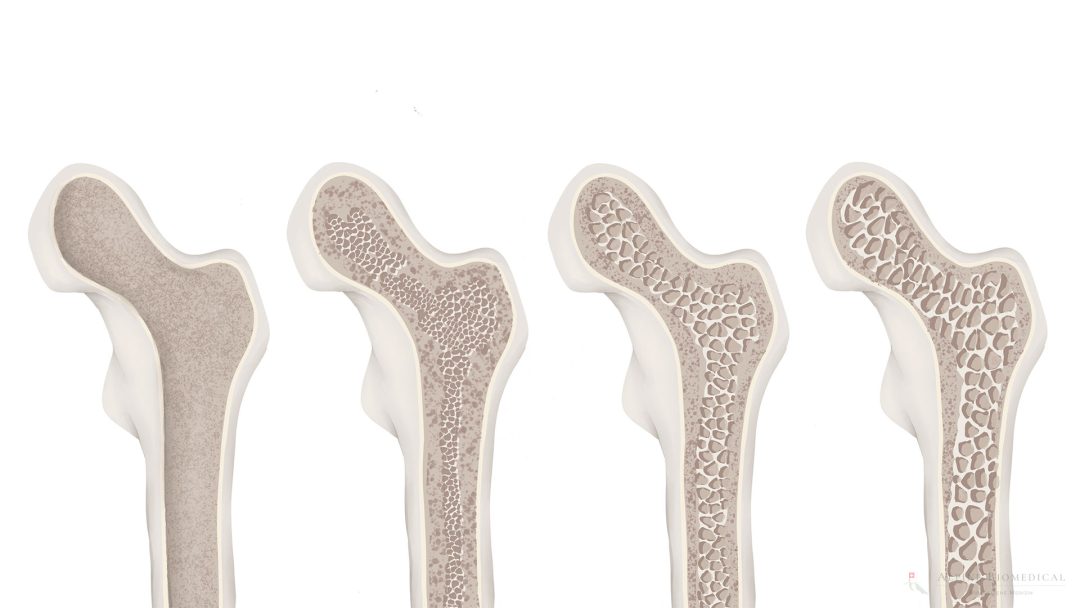Osteoporosis

Osteoporosis, also known as bone loss, is a common disease that weakens the bone structure and increases the risk of fractures. Osteoporosis causes bones to lose density, become porous and unstable. Women are affected by osteoporosis about twice as often as men.
The first signs are usually inconspicuous, but at an advanced stage back pain, bone fractures and a decrease in height due to broken vertebrae often occur.
Causes of Osteoporosis
Osteoporosis can have many causes, and the disease can be described as multifactorial. The following causes can be associated with osteoporosis:
- Hormone changes during menopause
- Lack of vitamins (such as vitamin D, vitamin K2), minerals (such as calcium, magnesium, silicon) and trace elements (such as zinc, boron, selenium)
- Protein deficiency
- Genetic predisposition
- Medication (for example cortisone)
- Hormonal changes, such as hyperthyroidism
- Unhealthy lifestyle habits such as smoking and excessive alcohol consumption as well as lack of exercise.
- Chronic inflammation in the intestine
- Silent inflammation
Osteoporosis Therapy
Conventional therapy for osteoporosis aims to slow down bone loss and increase bone density. This is often achieved with a combination of medication, a calcium- and vitamin-rich diet, targeted strength training and regular exercise. It is also advisable to stop smoking and reduce alcohol consumption.
Other supportive measures include intestinal cleansing and the elimination of hidden inflammation in the body, such as inflammation of the jaw.
With the help of individually tailored infusion therapies, micronutrient deficiencies and imbalances can be effectively corrected.
Early detection of osteoporosis is the key to effective treatment. Post-menopausal women and patients with a family history of osteoporosis in particular can benefit from a bone density measurement from the age of 60.
Osteopenia
Osteopenia is the preliminary stage of osteoporosis. A reduced bone density can be detected and the risk of fracture is already increased. Those affected by osteopenia generally do not show any symptoms. However, it is a gradual, continuous bone loss that leads to osteoporosis if nothing is changed.
Dr. med. Karsten Ostermann M.A.
In the case of osteoporosis, not only the symptoms but also the causes should be included in the treatment planning. We will be happy to help you.

Further information
The information listed contains relevant topics and serves to improve understanding.